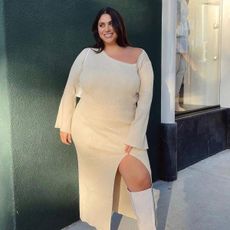If You're Over 40, You Have "Mature" Skin—Here's the Best Foundation for It
The idea that your skincare routine should change with your age is nothing new—the label "formulated for mature skin" speaks to that fact. But this somewhat vague designation begs the question: What exactly is "mature" skin, and at what age is your skin considered mature?
"It’s hard to say a definitive number," said Morgan Rabach, MD, board-certified dermatologist and co-founder of New York City–based LM Medical. "The age of someone's skin doesn't necessarily sync up with the age of the person." She adds that a variety of factors play a role in skin maturity, including genetics, ethnicity, overall health, and lifestyle choices like hydration, smoking, drinking, and sun exposure.
According to Rabach, "mature" skin is more about certain characteristics, like fine lines, wrinkles, and a loss of elasticity, than a specific age. "Sometimes I can see the start of [aging] by the early 20s, and sometimes I see 45-year-olds and I'm surprised by their birthday. I would say that by your 40s, most people have some [signs of aging]."
How to Tell if You Have "Mature" Skin
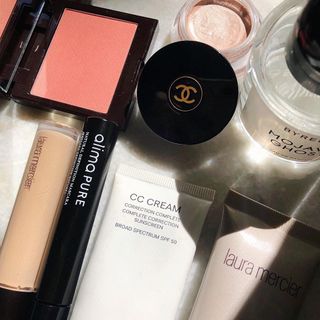
Rather than looking to your age as the defining factor, Rabach defines mature skin as the appearance of fine lines and wrinkles, loose skin, wrinkling in the neck and eyelids, and a loss of volume in the soft tissue of the face, leading to jowling and nasolabial folds (also known as laugh lines).
"There is also a general thinning of the skin as we age," she adds. "The skin becomes more fragile, translucent, and shows more blood vessels. Skin also becomes drier because there is less oil production." Sun spots can also contribute to the look of mature skin, no matter what your age.
What to Look For in a Foundation For Mature Skin
If you're considering a foundation specifically formulated for mature skin, Rabach has some tips. "Sunscreen is a must every single day, even in the winter," she instructs. "A foundation with a sunscreen would be a benefit."
If Rabach had to pick one anti-aging ingredient for mature skin, it would be retinol. "Retinols really address every issue in aging skin—they remove dead layers of skin, increase collagen and elastin (which thickens the skin), and reduce pore size and pigmentation."
Moisture is also incredibly important when it comes to selecting the right foundation. Rabach specifically recommends something with hyaluronic acid for a potent dose of hydration throughout the day. Heed Dr. Rabach's advice and shop the best foundations for mature skin below.
$15 or Less
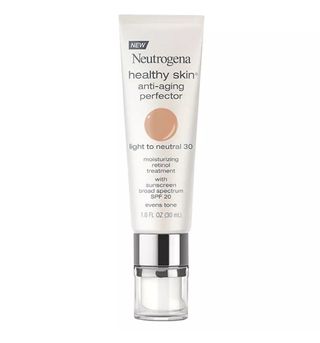
This $10 drugstore gem is formulated with SPF 20 and retinol.
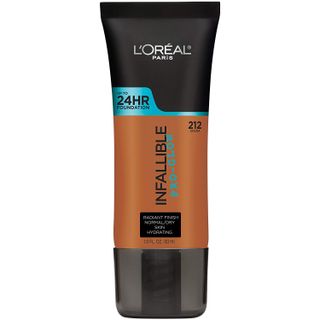
L'Oréal's infallible formula offers 24-hour coverage that won't dry out.
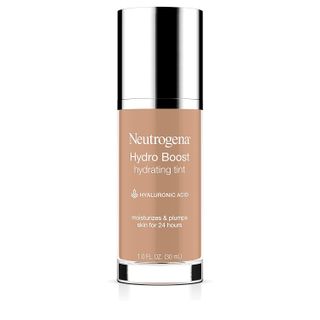
Moisturizing hyaluronic acid is the star ingredient in this budget foundation.
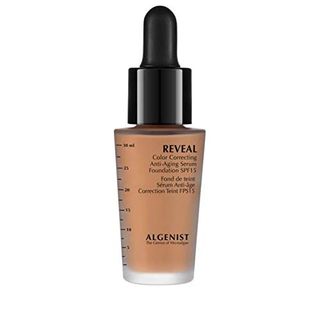
This serum-based foundation is infused with the brand's AlgaCorrecting Complex, alguronic acid, and microalgae oil.
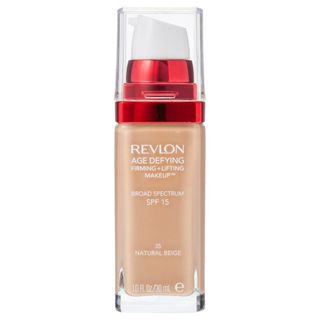
Revlon's age-defying SPF 15 foundation is a top-rated pick on Amazon.
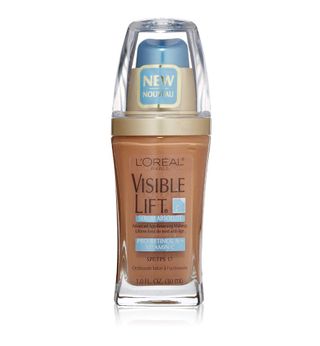
Infused with pro retinol A, vitamin C, and SPF 17, this wallet-friendly formula delivers a powerful anti-aging punch.
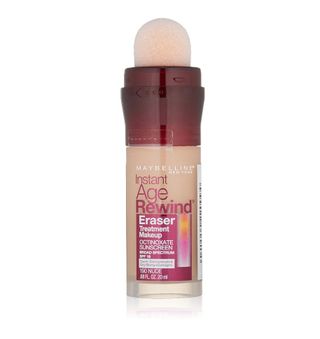
This anti-aging foundation is enriched with skin protecting antioxidants and SPF 18.
$15 to $50

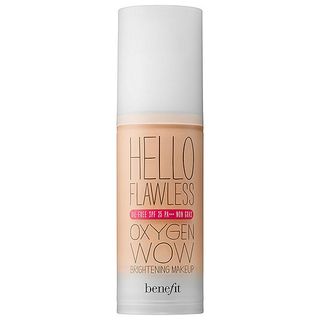
Benefit's Oxygen Wow formula is enriched with firming vitamin C and SPF 25.
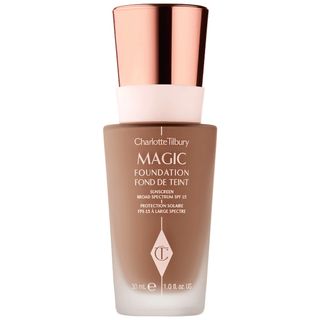
This anti-aging powerhouse is infused with skin-firming concentrated mushroom extracts, moisturizing hyaluronic acid, and smoothing vitamin C.
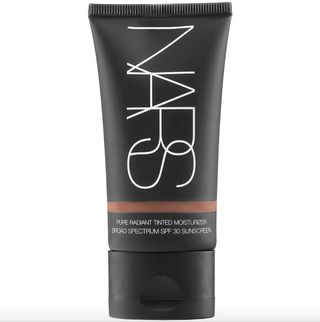
With vitamin C derivative, mineral-rich sea water, and Kopara, this lightweight tinted moisturizer is perfect for everyday wear.
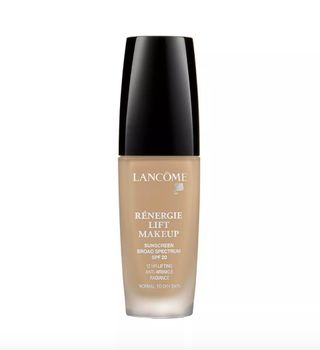
Formulated with pure vitamin E nano-capsules plus stimulating caffeine, ivy, and corn extracts, Lancôme's Rénergie foundation is an anti-aging powerhouse.
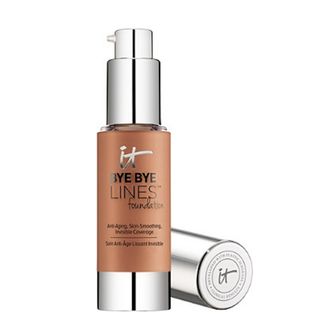
This full-coverage formula is enriched with caviar extract, hydrolyzed collagen, hyaluronic acid, argan oil and babassu oil, plus vitamins A, C, E, B1, B2, B3, B5, B7, B9, and CoQ10.
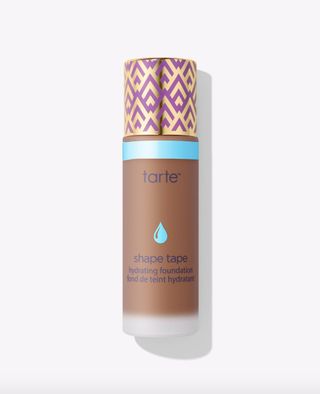
Brimming with collagen and hyaluronic acid, this midrange formula smoothes pores and plumps fine lines.
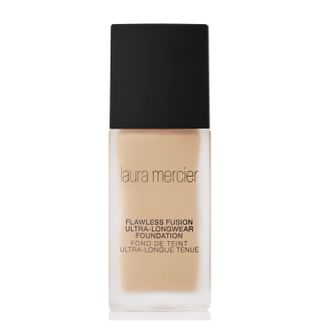
This long-lasting formula offers 15 hours' worth of weightless coverage that won't cake or dry out.
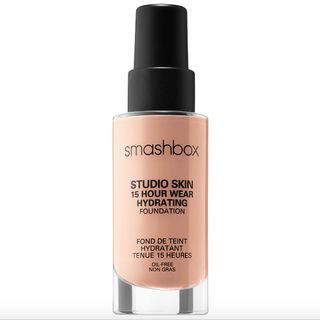
When it comes to mature skin, you can't go wrong with vitamin E and hyaluronic acid.
$50 and Up
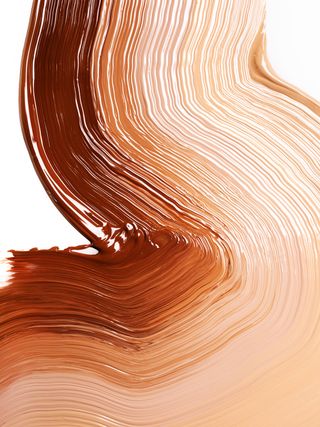
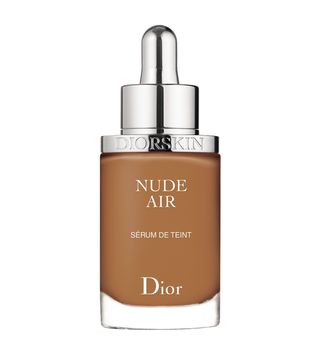
This lightweight foundation features the brand's Oxygen Activ technology—a blend of hyper-oxygenated oil, cranberry oil, vitamins, and minerals.
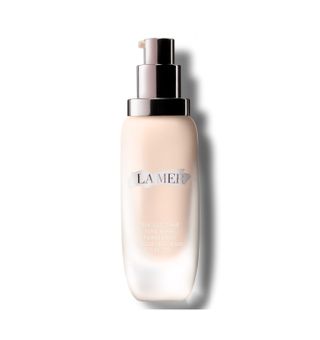
La Mer's moisturizing formula offers incredibly lightweight coverage to emphasize the skin's natural beauty.
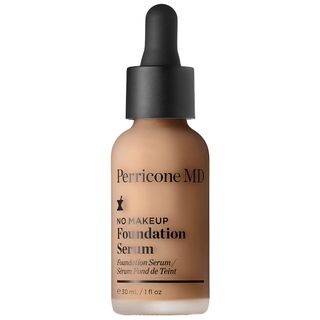
Firming neuropeptides, nourishing daisy flower extract, and brightening bisabolo enrich this potent anti-aging foundation.
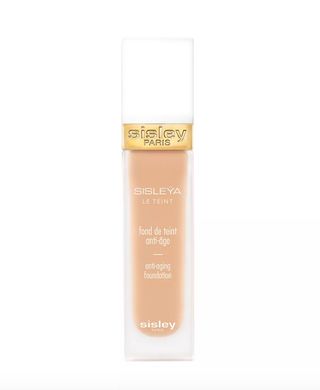
This luxurious foundation is formulated with Sisley Paris's anti-aging Persian acacia extract.
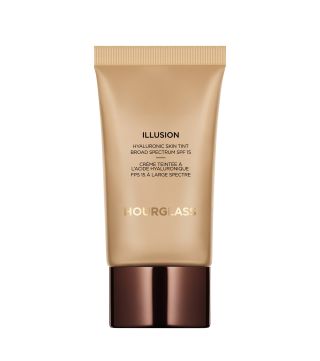
With SPF 15 and hyaluronic acid, this tinted moisturizer is perfectly formulated for mature skin.
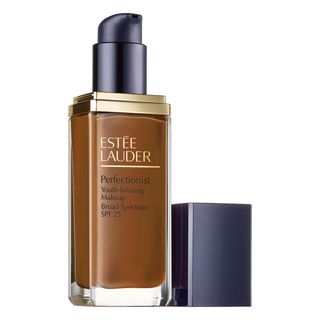
This medium to full-coverage foundation is infused with the brand's anti-aging Perfectionist serum.
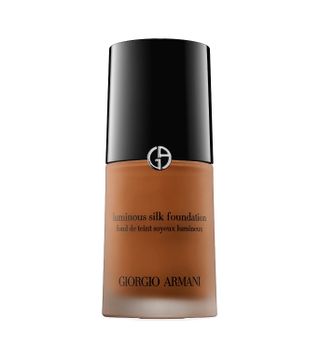
Infused with the brand's patented Micro–Fill technology, this award-winning foundation offers buildable coverage plus anti-aging benefits.
Next up, 13 drugstore BB creams that will trick everyone into thinking you have perfect skin.
This article was originally published at an earlier date and has been updated.
Kelsey Clark is a freelance writer and content strategist based in Detroit. She got her start in editorial in New York City as MyDomaine's lifestyle editor and has since gone full-time freelance. She now contributes to Who What Wear, THE/THIRTY, Domino, Glamour, The Zoe Report, Apartment Therapy, and more, in addition to working with brands such as Bloomscape and EyeSwoon on content strategy and copywriting. She's written about fashion, interior design, health and wellness, pop culture, food, travel, politics, and professional development, but she'd consider the first three verticals her main "beats." She's also incredibly passionate about mental health awareness and hopes to help eradicate the social stigma through storytelling and education. When she's not writing, you can find her scouring thrift stores for Levi's 501s, picking up a new vintage piece for her apartment, or exploring new restaurants and bars across Detroit.
-
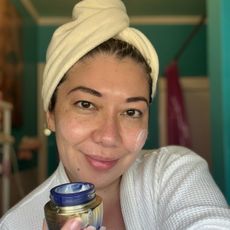 This Hero Japanese Skincare Ingredient Transformed My Dry, Perimenopausal Skin
This Hero Japanese Skincare Ingredient Transformed My Dry, Perimenopausal SkinI'm obsessed.
By Marie Lodi
-
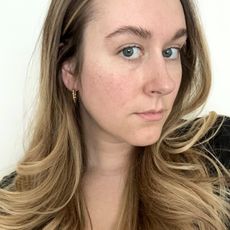 I'm 28, But My Neck Looks Way Older: I Asked 2 Derms What to Do About It
I'm 28, But My Neck Looks Way Older: I Asked 2 Derms What to Do About ItOperation "reverse-age my neck" has commenced.
By Kaitlyn McLintock
-
 An Expert Told Me This Cutting-Edge Molecule Is the Key to Visibly Youthful Skin
An Expert Told Me This Cutting-Edge Molecule Is the Key to Visibly Youthful SkinIt also gives you a serious glow.
By Shawna Hudson
-
 This Buzzy Noninvasive Treatment Can Smooth Fine Lines as Well as Botox
This Buzzy Noninvasive Treatment Can Smooth Fine Lines as Well as BotoxIt's definitely worth trying.
By Shawna Hudson
-
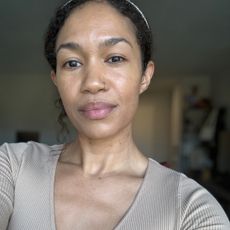 This TikTok-Viral Foundation Gives a Radiant, Filtered Effect in Seconds
This TikTok-Viral Foundation Gives a Radiant, Filtered Effect in SecondsI was pleasantly surprised.
By Shawna Hudson
-
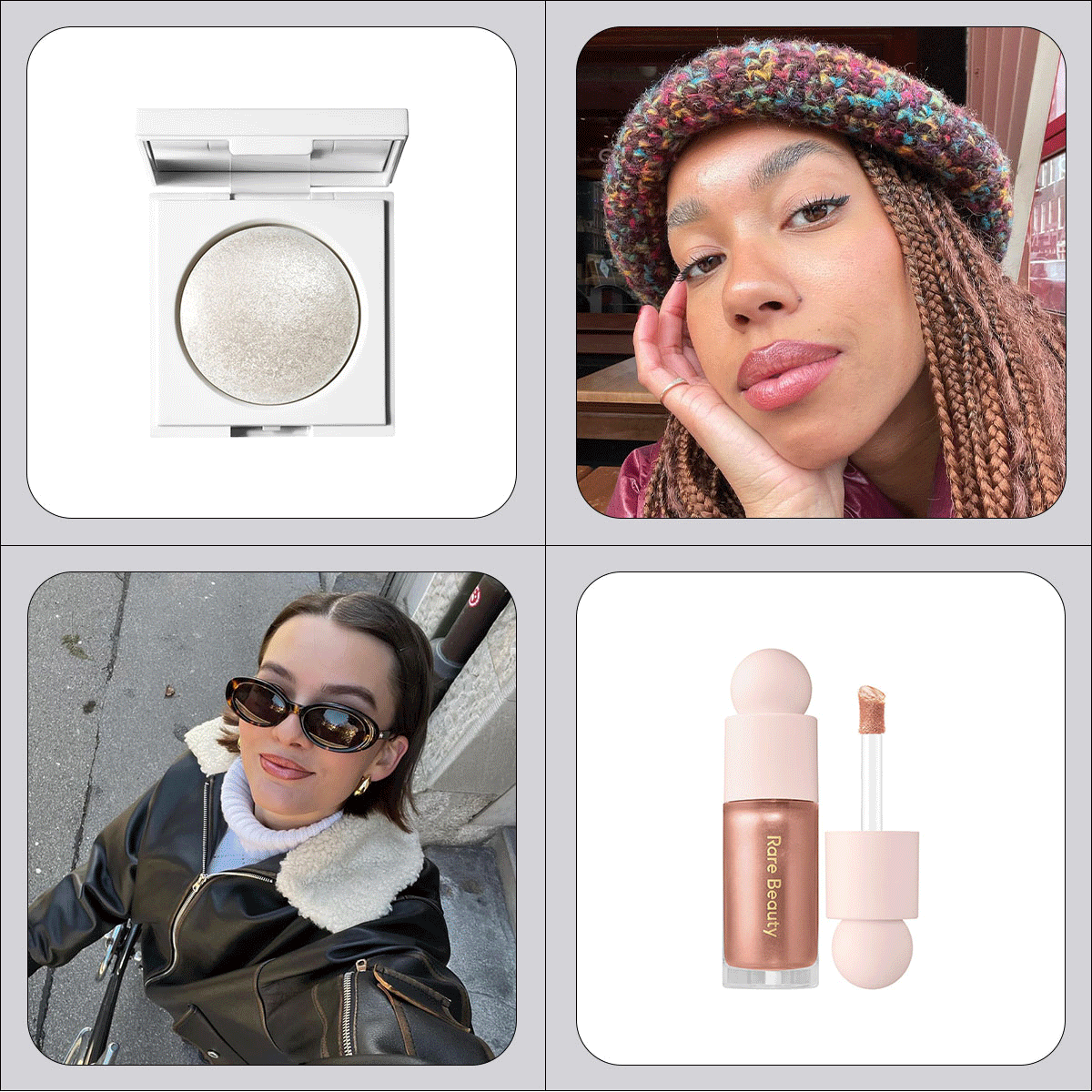 Out of All the Makeup Brands Editors Have Access to, We Use These 8 the Most
Out of All the Makeup Brands Editors Have Access to, We Use These 8 the MostThey're too good.
By Maya Thomas
-
 I Just Turned 30—Here Are the Anti-Aging Products I Added Into My Beauty Routine
I Just Turned 30—Here Are the Anti-Aging Products I Added Into My Beauty RoutineI'm talking about at-home lasers, peels, and more.
By Valeriya Chupinina
-
 If Your Foundation Is Detectable, I'd Trade It In for This Sleeper Hit
If Your Foundation Is Detectable, I'd Trade It In for This Sleeper HitI'm all about traceless makeup.
By Kaitlyn McLintock

